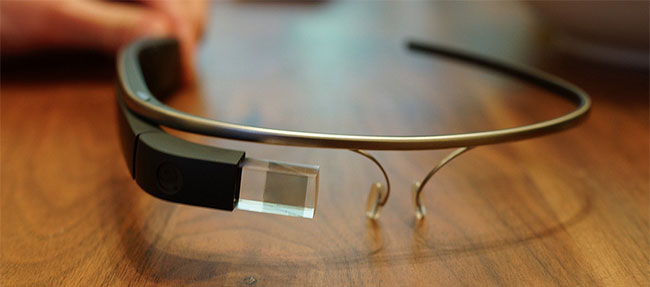As technology continues to become even more integrated into our everyday lives, existing laws can become fuzzy when it comes to how emerging technologies should be treated. Case in point, “Glass Explorer” Cecilia Abadie recently received a ticket from a California police officer for driving while wearing her Google Glass. The kicker, she insists it was turned off while she was driving.
According to California Vehicle Code Section 27602:
(a) A person shall not drive a motor vehicle if a television receiver, a video monitor, or a television or video screen, or any other similar means of visually displaying a television broadcast or video signal that produces entertainment or business applications, is operating and is located in the motor vehicle at a point forward of the back of the driver’s seat, or is operating and the monitor, screen, or display is visible to the driver while driving the motor vehicle.
Although exemptions are made in the statute for certain installed equipment such as in-dash units and mounted navigation systems, it appears that Google Glass does not fall under any existing exemptions. Now, thanks to what should have been a simple speeding ticket, the additional citation for driving while wearing Google Glass has put Abadie in the unenviable position of contesting her ticket on behalf of early adopters everywhere.
Because of its unique nature, the ticket has already gotten national attention. And, regardless of whether the argument that Google Glass was turned off at the time of the citation is enough to get the ticket dismissed, the larger issue of whether Google Glass’ navigational features will be considered legal for use while driving remains to be seen.
As attorney Ralph Jacobson explains, “What you do for any crime or violation is look at each prong of the statute and decide if the person’s conduct meets it beyond a reasonable doubt. Here, that would be: 1-driving; 2-video screen; 3-produces business or entertainment apps; 4-operating; and 5-located forward and visible to driver.” In this particular instance, Abadie claims the device was powered off at the time of the citation and the ticket would seem to not hold much water.
However, if at the time of the citation, Google Glass had been powered on and Abadie was using the nav functions it is entirely possible the ticket would prove to be justified. After all, since Google Glass is not a mounted device, none of the exemptions in VC 27602 would apply.
Thanks in large part to misconceptions surrounding how the new technology works, it’s easy to dismiss Google Glass as a possible cause of distracted driving without really understanding how the device works. As one user explains, “A lot of people misunderstand how glass works. More specifically, how you don’t focus on the prism, rather you focus ahead… In my experience it’s safer than using any modern GPS unit to date because of this.”
Obviously a devout user isn’t always the greatest representative in determining whether a specific product is safe, but the argument that a built in 17 inch monitor is completely safe while Google Glass is not, doesn’t exactly pass the eye test.
It will be interesting to see whether Abadie’s ticket stays in the spotlight or simply disappears until Google Glass becomes mainstream enough to warrant its own set of guidelines. Until then, the short, and entirely unsatisfying answer to whether driving with Google Glass is a ticketable offense seems to be, maybe it is, maybe it isn’t.


